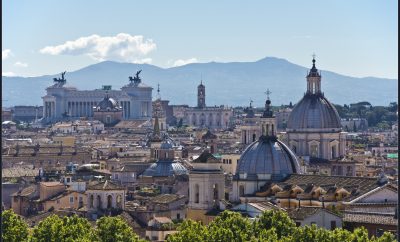 Image courtesy of [Sachyn Mital via Wikimedia]
Image courtesy of [Sachyn Mital via Wikimedia]
Entertainment
Is Sean Penn a Journalist?
I was in an airport in New York City when I first heard that Sean Penn wrote a 10,000 word piece on El Chapo for Rolling Stone, which may have led to El Chapo’s recapture. The place was significant to me because I had spent the last two weeks in the city that never sleeps, where some of the country’s best journalists live and write and report the news. My first thought was, So Sean Penn writes now? Huh.
In reading the article, I had a hard time getting past the line where he says he never learned how to use a laptop and wasn’t sure they were made anymore. The article was cheesy. It was poorly written. It did nothing for me. But it got me thinking about journalism as a whole–that’s when I started to pay attention.
When sensational things like this happen–where a famous person and an infamous person meet in secret for an article in Rolling Stone, for example–I find that it’s more important to pay attention to the aftermath than to the actual event. In the aftermath of this article being released, there were comments from all sides on every single news outlet that I watched. Many began by covering the recapture of El Chapo and the plan to extradite him to the United States so that he can’t escape from prison again (you really need to step up your prison game when you’re holding drug lords, Mexico). Inevitably, though, they always eventually started talking about Sean Penn and playing clips from an interview he did with Charlie Rose on “60 Minutes.” That is when things get interesting.
According to the interview, Sean Penn is sad about the state of journalism. He says, “’Journalists’ [the air quotes are his] who want to say I’m not a journalist, well, I want to see the license that says that they’re a journalist.” (The emphasis is also his.) He doesn’t seem to grasp where he’s sitting and who he’s talking to, and that’s what’s making people–especially other journalists–angry.
First of all, to those who say that Sean Penn has never written anything–he has. His IMDB page shows that he has six writing credits, including two screenplays. He has also used his fame and his political and social beliefs to have editorials published in The Washington Post and The New York Times, along with other publications. He has interviewed controversial world leaders such as Raul Castro and Hugo Chavez. He has never seemed to find his footing, however, amongst the journalistic community.
Second, consider who Sean Penn is talking to on “60 Minutes.” Charlie Rose holds a law degree from Duke University. He has won awards for his journalism, including an Emmy Award for his interview with Charles Manson and a Peabody Award for his interview with Jimmy Carter while he was president. Sean Penn was insulting journalism in front of a successful and revered journalist. He was asking to see Charlie Rose’s “journalism license” as he sat right in front of him.
Charlie Rose, for his part, remained calm and collected about the whole thing, never showing offense to the ridiculous things that Sean Penn said about journalism. The interview, as a whole, did not show Sean Penn in a great light. He seemed selfish, dismissive, and defensive. He said that no one understood him. He tried to make it into everyone else’s fault that his Rolling Stone article “failed.”
This, to me, is what makes it clear that Sean Penn isn’t a journalist, even though he wants to be. Journalism (in most cases) is about reporting facts in a way that makes a story enticing to read or watch. It isn’t about making a point–it’s about revealing something new that people at large are interested in. No, you don’t need a license, but you need generally need a college degree and an understanding of what the end goal is. An interview with El Chapo could have been a very interesting piece of journalism. It had the potential to become something big and important, like interviews with criminals that reveal some of their motivations and tendencies. What Sean Penn did was write an extremely long self-indulgent essay for a magazine that was as much about him as it was about his subject. In addition, he let El Chapo review the piece before it went to press. Sure, he wrote something for a magazine. I guess that makes him a journalist. But what he wrote wasn’t journalism. It was a bizarre memoir. That’s the difference.








Comments